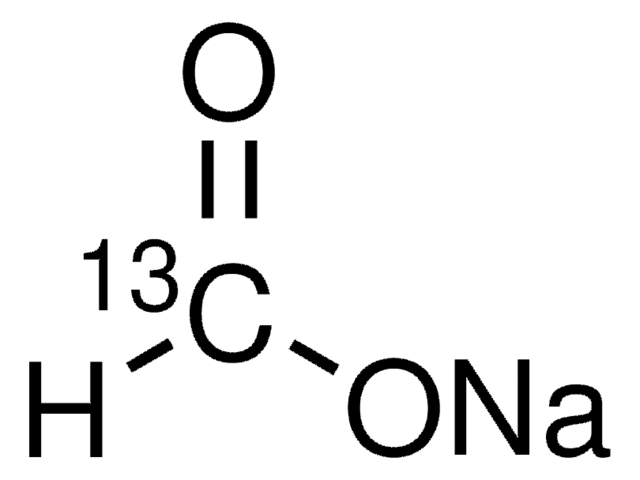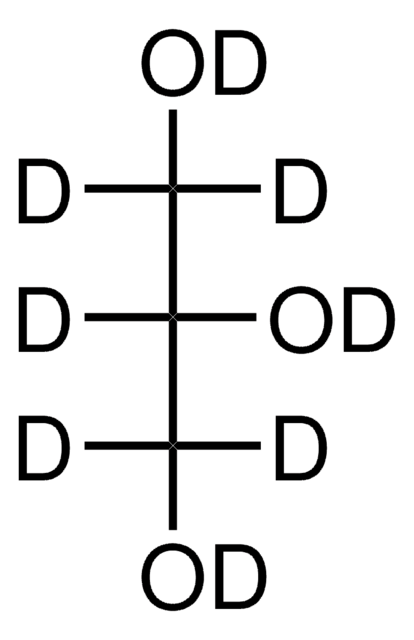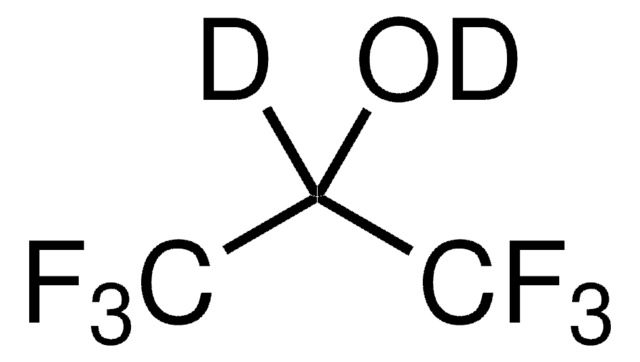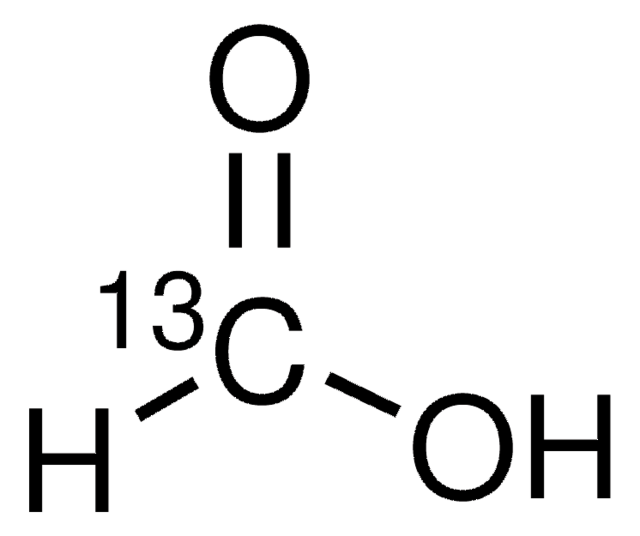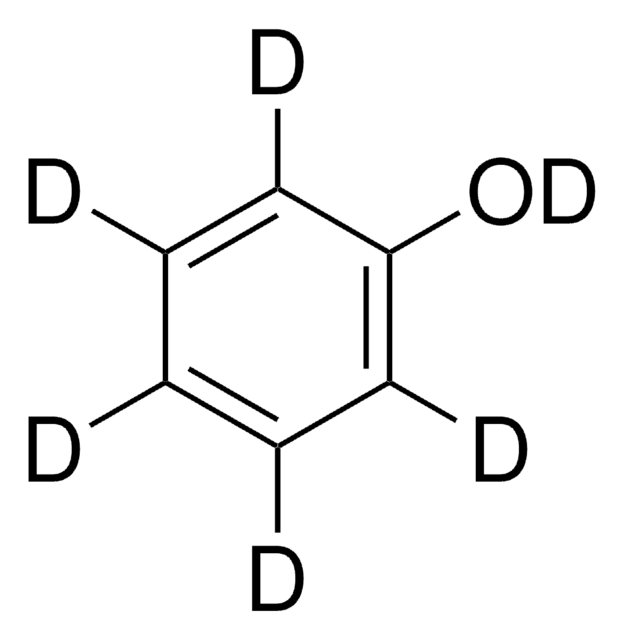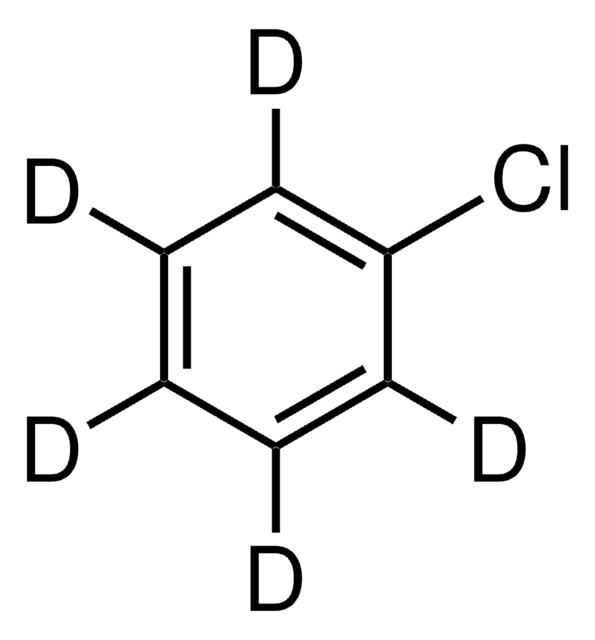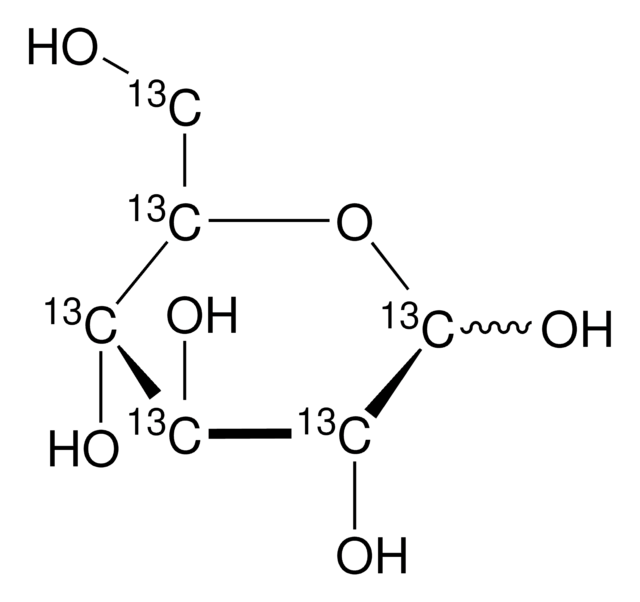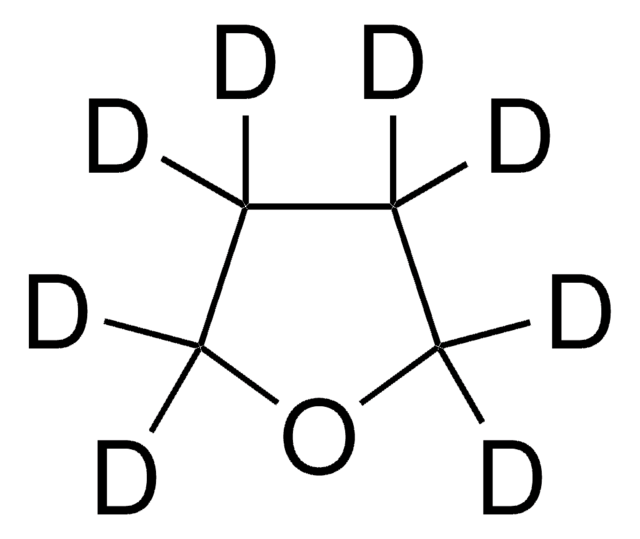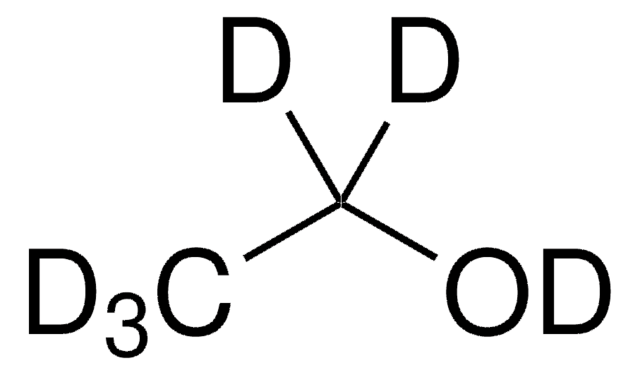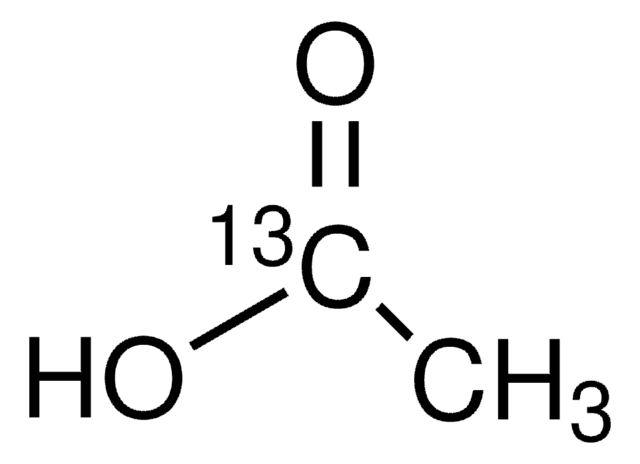427039
Ethanol-13C2
99 atom % 13C
Synonym(s):
Ethyl alcohol-13C2
About This Item
Recommended Products
isotopic purity
99 atom % 13C
Quality Level
Assay
99% (CP)
form
liquid
refractive index
n20/D 1.362 (lit.)
bp
78 °C (lit.)
mp
-114 °C (lit.)
density
0.839 g/mL at 25 °C
mass shift
M+2
storage temp.
room temp
SMILES string
[13CH3][13CH2]O
InChI
1S/C2H6O/c1-2-3/h3H,2H2,1H3/i1+1,2+1
InChI key
LFQSCWFLJHTTHZ-ZDOIIHCHSA-N
Related Categories
Packaging
Signal Word
Danger
Hazard Statements
Precautionary Statements
Hazard Classifications
Eye Irrit. 2 - Flam. Liq. 2
Storage Class Code
3 - Flammable liquids
WGK
WGK 1
Flash Point(F)
55.4 °F - closed cup
Flash Point(C)
13 °C - closed cup
Choose from one of the most recent versions:
Already Own This Product?
Find documentation for the products that you have recently purchased in the Document Library.
Customers Also Viewed
Articles
Sigma-Aldrich.com presents an article concerning MRI/MRS and the use of isotopes in hyperpolarization.
Dynamic Nuclear Polarization (DNP) is a phenomenon by which high spin polarization, typically derived from a bath of free radical electrons, is transferred to a nuclear spin bath, enhancing the difference between the nuclear energy levels and thereby producing dramatically enhanced NMR signals for detection.
Our team of scientists has experience in all areas of research including Life Science, Material Science, Chemical Synthesis, Chromatography, Analytical and many others.
Contact Technical Service
